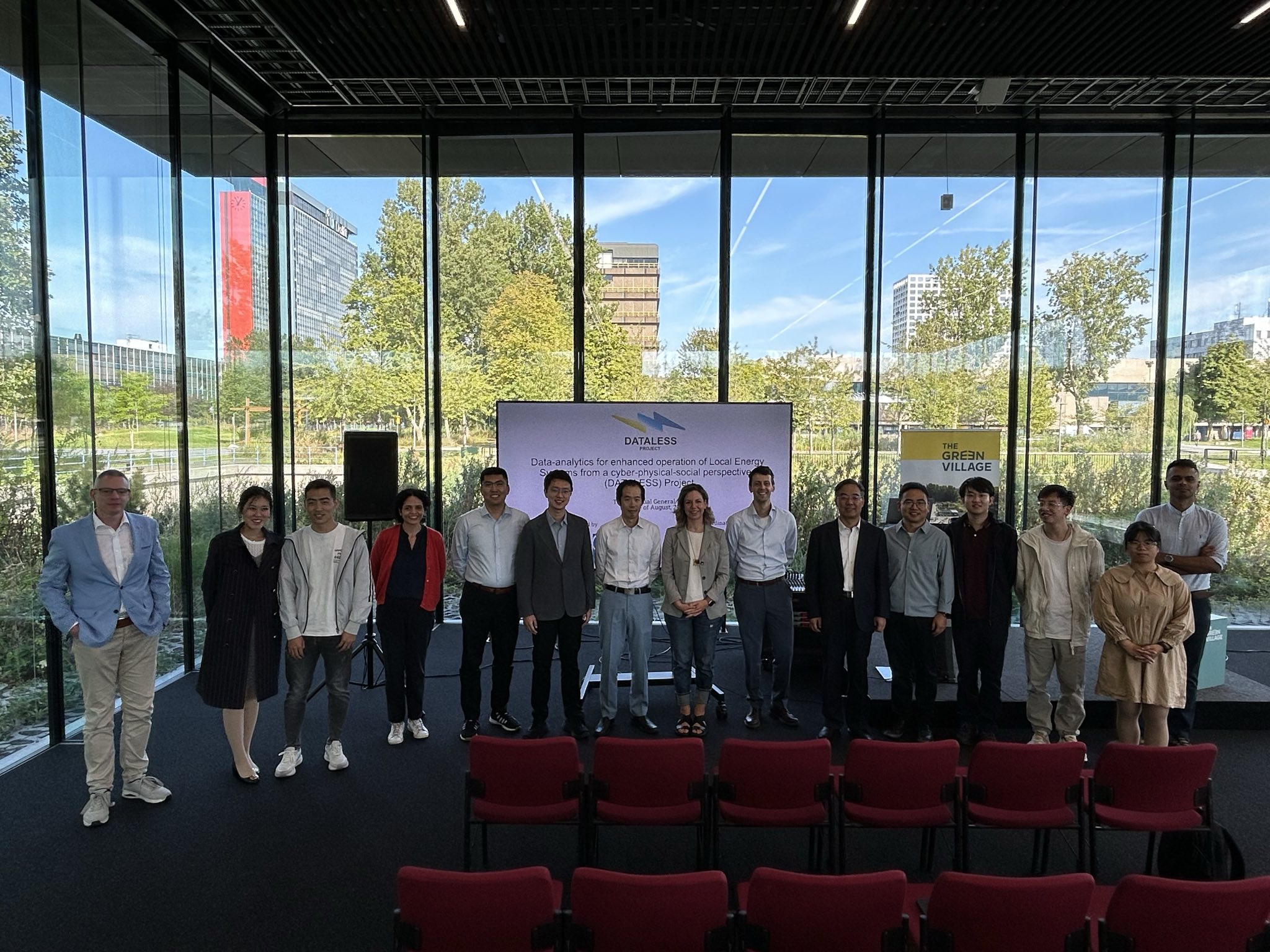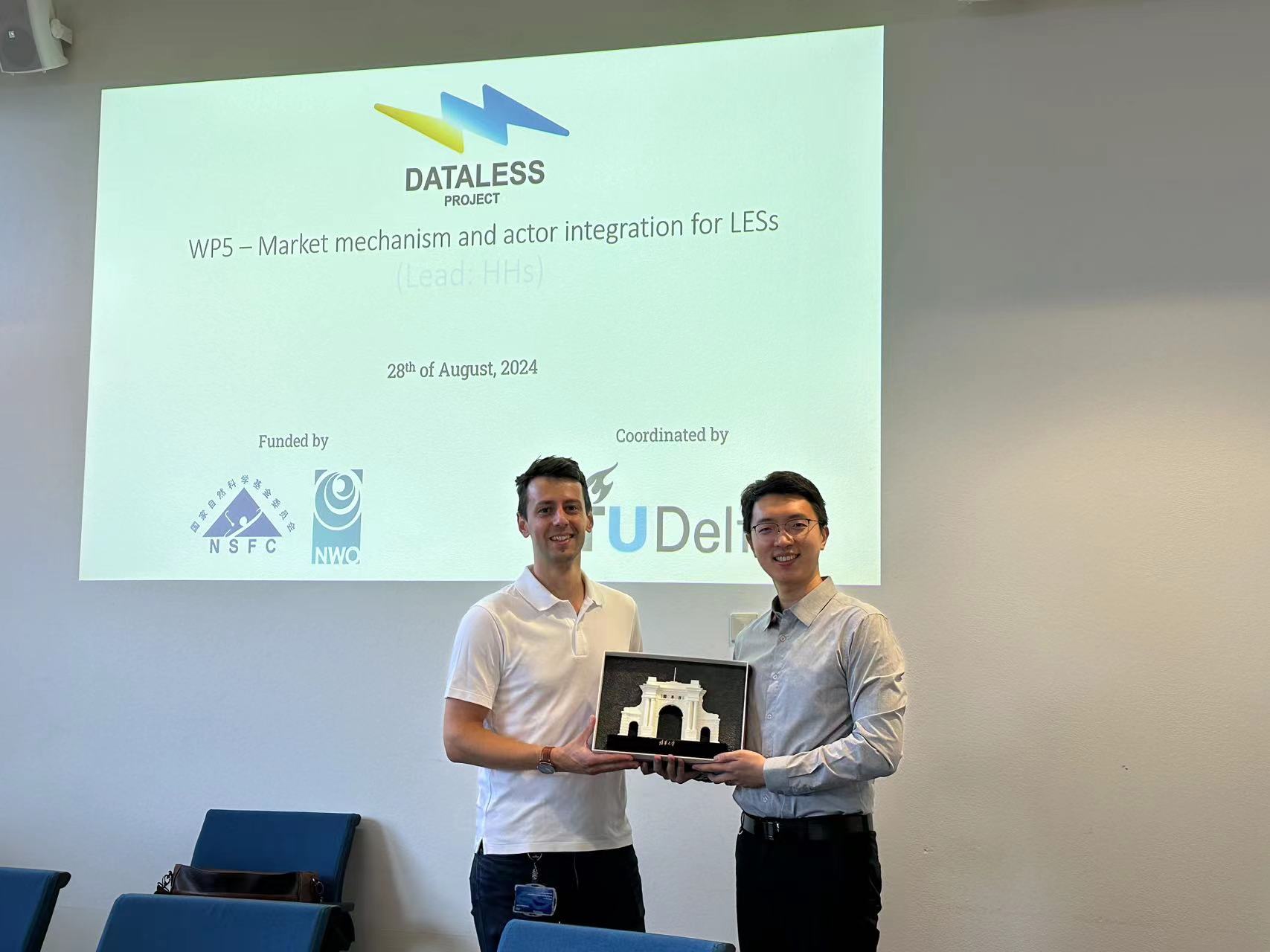
The Green Village
On August 27-28, 2024, researchers from Tsinghua University and Zhejiang University visited Delft University of Technology (TU Delft) and The Hague University of Applied Sciences (THUAS) for the third consortium meeting of the DATALESs Project. This international collaboration aims to develop data-driven solutions for Local Energy Systems (LES), integrating renewable energy sources and enhancing system resilience through advanced analytics and AI.
The visit began at The Green Village on TU Delft’s campus, a living lab for sustainable innovation. During the morning session, updates from project work package (WP) leaders were presented, offering insights into the progress made so far. A tour of The Green Village showcased innovations in green buildings and sustainable energy systems, aligning with the DATALESs project’s focus on improving energy flexibility and the integration of Distributed Energy Resources (DERs).
THUAS visit
In the afternoon, the consortium discussed future objectives, including enhancing the operational efficiency of LES and reducing energy costs. Presentations from both the Chinese and Dutch teams emphasized the role of cyber-physical systems and data analytics in improving energy management, with an eye toward achieving carbon neutrality by 2030. These discussions laid the groundwork for future collaborations within the project.The second day of the visit took place at THUAS, where the focus shifted to data science and energy management. The delegation was introduced to the Data Innovation Hub, a collaborative platform for managing data science projects between academic institutions and industry. This hub plays a critical role in fostering partnerships that support real-world applications of data analytics, particularly in energy systems. The visitors also explored ongoing projects led by THUAS’s data science research group, which demonstrated how data-driven solutions can optimize energy distribution and consumption.


Workshop on potential collaboration
The visit concluded with a productive workshop on potential collaboration and joint research initiatives. Discussions revolved around creating new market mechanisms for energy flexibility trading and using blockchain technology to enhance privacy and scalability in energy transactions. These insights will contribute to the development of the project’s objectives, particularly in the areas of peer-to-peer energy trading and improving cybersecurity in energy networks.
Overall, the visit strengthened the consortium’s commitment to international collaboration and reaffirmed the importance of joint efforts in addressing global energy challenges. The exchange of ideas and research demonstrated how the DATALESs project can serve as a model for cross-border cooperation in developing innovative energy solutions for a sustainable future.

